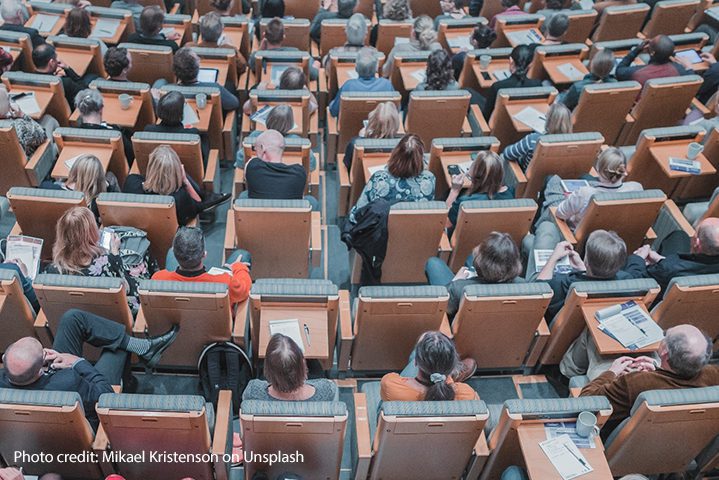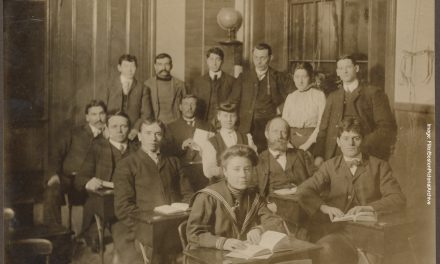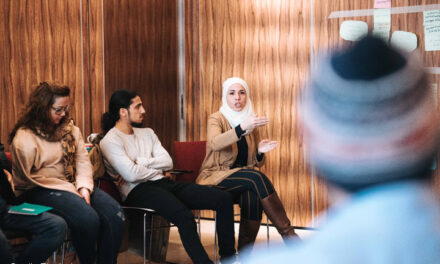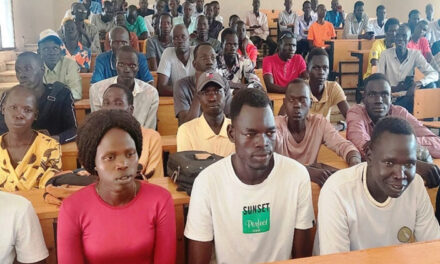Growing numbers of universities worldwide are offering programmes in Artificial Intelligence. In this UKFIET Blog, Mike Douse describes a very different kind of higher educational institution: one that is based upon and applies AI in all of its actions.
Only the students are people. All other roles and responsibilities at the Artificial Intelligence University (AIU) – those of the professors, lecturers, research organisers, curriculum designers, administrators, maintenance workers, cleaners, careers guidance officers, outreach specialists, security staff, top management and quality control – are effectively delivered by and entirely embody AI.
Bachelor and Masters’ level degrees by coursework are available across all disciplines, embracing each of the coherent subject areas presently covered by the most reputable ‘human’ universities worldwide, albeit more systematically organised and ceaselessly synergy-supportive. In many disciplines, traditional small group AI-moderated tutorial arrangements apply. In others, AI-guided laboratory practice is key, involving the very latest facilities along with guidance in their safe and optimal use. Practical experiences – in for example, hospitals, construction sites or overseas locations – are arranged by the university although, of course, are in practice conducted and reported upon by reliable human agency.
Instantaneous translation (from and into any of 330 languages and dialects) enables all on-campus and all distance learners to participate in tutorials in their preferred tongues. Similarly, lectures may be received by individuals at any time, in each student’s own language, and always up-to-date taking account of feedback and the very latest research. There is a 3-minute standard for the return of essays and assignments, duly graded and containing constructive comments, including detailed and bespoke suggestions for further investigation and analyses. Postgraduate degrees by research, including Doctorates in any valid field of knowledge, are AI-supervised and supported. While ultimately assessed by the AIU, each thesis’ appraisal is moderated by an established university’s representative: ensuring that standards are high, and are seen to be high, are vital objectives.
Every aspect of the AIU experiences makes sensible and creative use of the latest relevant technology (for instance, there can be no plagiarism). Learning materials are constantly reviewed and updated, whether in Roman History or Astrophysics. Language acquisition programmes encompass immersive and personalised involvement. Social sciences, law and international relations, for example, make real-time use of case studies and simulations. Economic history, theology and law place students in situations wherein evidence-led decisions are to be made and their consequences assessed. Music, anthropology and drama, for instance, involve performance and creativity alongside fellow learners from any physical location. In the various branches of engineering, architecture and physical planning, students are called upon to design and create virtual entities, being judged by the functionality, costs and aesthetic quality of their constructions. And, of course, there is an almost impenetrable literary theory module for those so inclined.
Now that the AIU is up and running, with its ever-increasing income accruing from its research and development activities, along with the provision of specialist services, there is no longer any requirement for fees. Indeed, full-time on-campus (on the UK’s north Norfolk coast) students (presently some 1,700) are now receiving not only generous living allowances but compensation for their not working during their years of study. Distance learners (currently 13,400 and expanding rapidly) are similarly enrolled without charge and, for each of them, an allowance is paid to cover expenses likely to be incurred. Upon graduation, as well as generous prizes for outstanding students, cash awards enabling a smooth transition into the world of work are being provided.
Already, a number of traditional universities are expressing concern regarding this better-than-free higher educational institution drawing off their prospective students. This concern is likely to amplify as, inevitably, scare stories regarding the “machines taking over to further their own malignant ends”, and as rather more valid fears about job losses and de-personalisation, are already appearing. AIU’s answer will continue to be the real-life benefits from each of its teaching, research and community services and their overall contribution to the quality of human lives. Perhaps this evidence-based debate, along with the ever-more-responsively-evolving AIU itself, signal a dramatic reassessment of what a cyber age university should be and how it may best reflect and respond to the conditions and possibilities of these fragile and exciting times.





